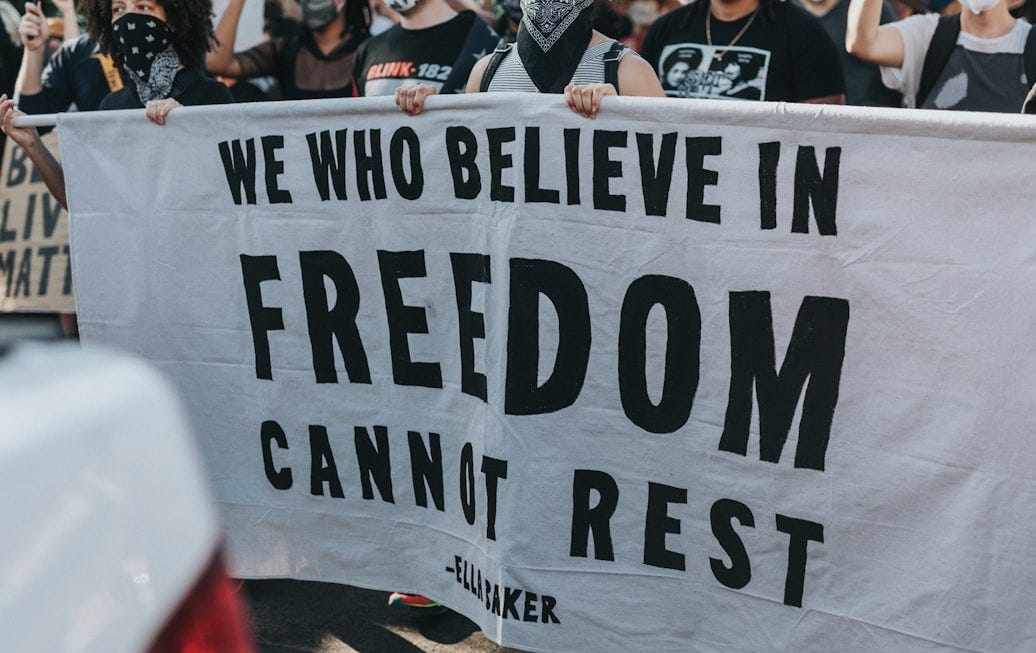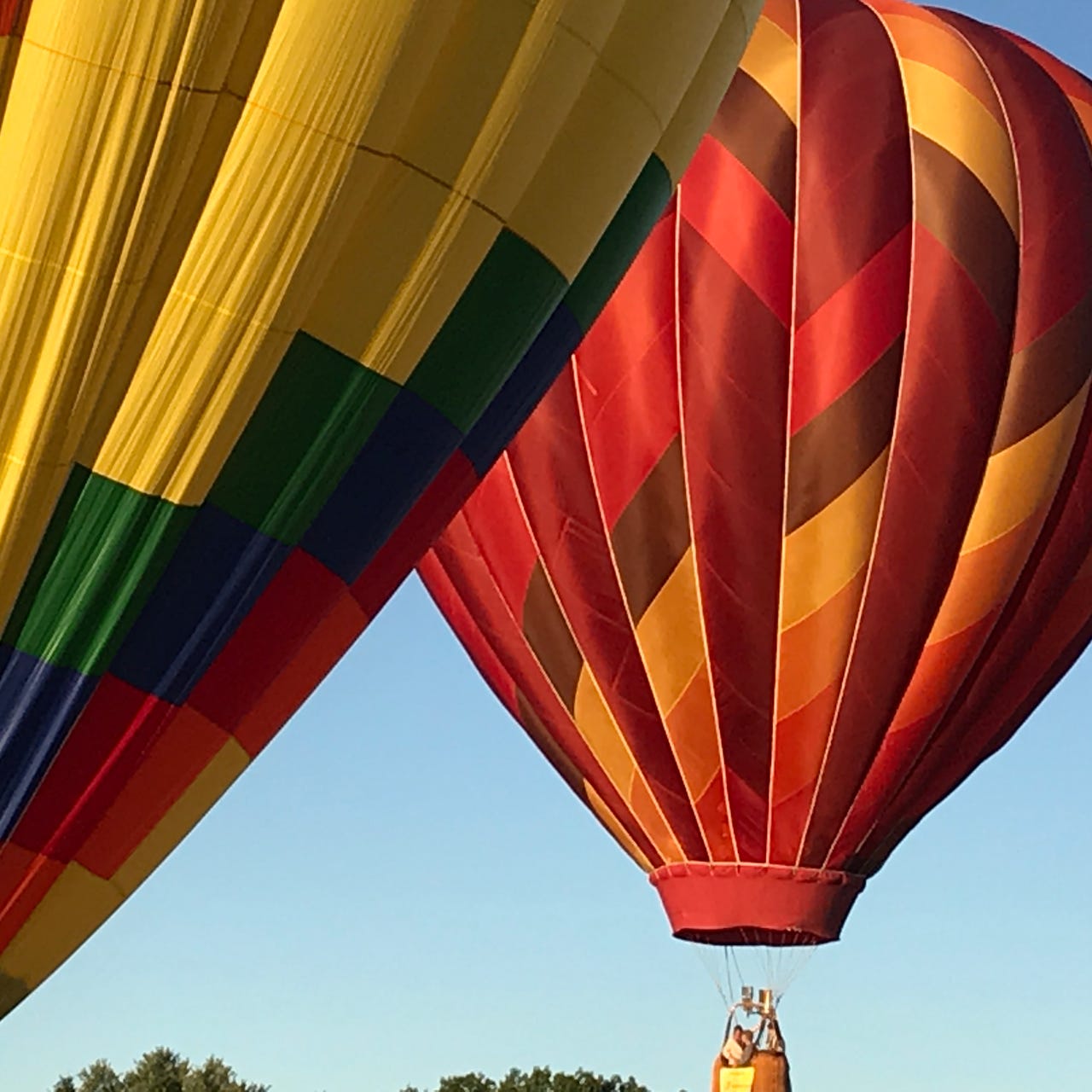I have a confession. The worse things get, the better I sometimes feel. Awful, aren’t I? Allow me to explain. Last week, I wrote about Cognitive Dissonance, the sense that all the world was make-believe, that we were playing a game of Let’s Pretend. Let’s pretend that people aren’t being rounded up and disappeared. Let’s pretend that we can still depend on our right to due process. Let’s pretend that the slaughter of the innocents isn’t taking place on our watch. Now the National Guard and the Marines have descended on the streets of Los Angeles and the veil has been lifted. Greater clarity brings with it intense distress along with some small comfort.

On Saturday night, as 2,000 National Guard troops prepared to deploy, I watched the live telecast of George Clooney’s play Goodnight and Good Luck which centers on Edward R. Murrow’s 1954 decision to take a stand against Joseph McCarthy, the junior Senator from Wisconsin. I had admired the 2005 movie by the same name. But times have changed in the last twenty years and I found the play on CNN both less effective as art and more potent politically. I didn’t particularly enjoy watching a play about a TV show on TV. But my aesthetic quibbles receded as I felt the full power of the panel of newspeople at the end of the play taking on the subject of freedom of the press and its concomitant responsibility.
The discussion, respectful throughout, touched on some of the most difficult questions faced by the media, as the members of the panel considered the relationship of journalists to truthtelling. On the one hand, the profession is under severe pressure from Washington, witness the lawsuit against CBS resulting in the resignation of the executive director of “60 Minutes.” This administration refers to the media contemptuously as the enemy of the people and fosters an atmosphere of constant threat that gives journalists little room for looking deeply at events from all angles. The course they are made to follow is narrow and increasingly unforgiving. At the same time, some members of the press self-censor out of an abundance of caution. There is a longstanding belief that journalists are responsible for delivering “the facts” like a bag of groceries, but not cooking the dinner. In the Saturday night discussion, I noted a nostalgic longing for a bygone era when the public was willing to believe that Walter Cronkite served up the facts unadorned. But the public is more cynical now and more aware. We all know that editorializing is built into the delivery of information. The choices of what to air or write about reflect the values of the media and its ownership. Do you cover the peaceful protests in state capitals all over the country or do you dwell on what Elon said to Donald in a fit of pique? Bret Stephens from the NY Times and NBC News proposed that journalists are responsible only for conveying a bare bones account of “what happened” and that any interpretation constitutes bias. Abby Phillip from CNN acknowledged a synthesizing function. Members of the press call attention to those aspects of the news that deserve our attention and in so doing let us know if and when we are entering a time of peril.
The argument is always that if we allow journalists to editorialize, warning the public in the present instance of the threat to civil liberties represented by the deploying of Marines to quell unrest in Los Angeles, we will get pro-government broadcasters emphasizing the incidents of violence at the protests and the need for riot control. But we already get that. We know that hundreds of people have been demonstrating against ICE actions in LA. But why? What do they hope to accomplish? Has the federal government exacerbated the situation and, if so, in what way? The public will not be able to assess the threat to the rule of law if it is not informed and properly warned of inroads into our protections under the First Amendment. The story will remain untold and the airwaves will be filled with Trumpist rhetoric.
The administration will cook us for dinner, seasoning the stew with racism, antisemitism, and assaults on freedom, boiling us like the proverbial frogs. We are all, journalists and civilians alike, called to pay attention. This takes courage. The George Clooney televised play was an attempt to sharpen our seeing and support our willingness to think about the unthinkable. I am grateful for that.
*******\***************************************************************************************
Many Voices will now accept contributions from all subscribers. At this critical time, we need to hear what everyone has to say. Please let me know if you have work that you would like to send to seventysomething for our Many Voices feature. Make your voice heard. Write to me at seventysomething9@gmail.com.
Please consider upgrading to a paid subscription to support seventysomething and have access to the archives. Your ideas are always welcome.
*************************************************************************************************************
Copies of my 2019 essay collection, Twilight Time: Aging in Amazement, are available directly from me (signed) or from your local bookseller.





I saw the play on TV too, with similar reactions. Except that I am gratefully left with Clooney/Murrow's question at the end: 'What will you do?' That's my question for every day. Even if I can't change the big picture (though I try), I can try to be the kind of person I believe in - kind, compassionate, loving... It's daily work. Meanwhile the hypocrisy that reigns in Trump et al is so hard to stomach - they blame journalists when their speech is so much worse. And what they are doing is so unthinkably awful.
Your lead photo reminds me of Sweet Honey in the Rock and Ella’s Song. Powerful.
https://youtu.be/LoPofPzkJ4U?si=NVRiZR8fW8qxIOtT
This version was recorded in Minneapolis, which makes it feel even more appropriate to send to you 🧡 blessings
We who believe in freedom cannot rest 💪🕊️🔆